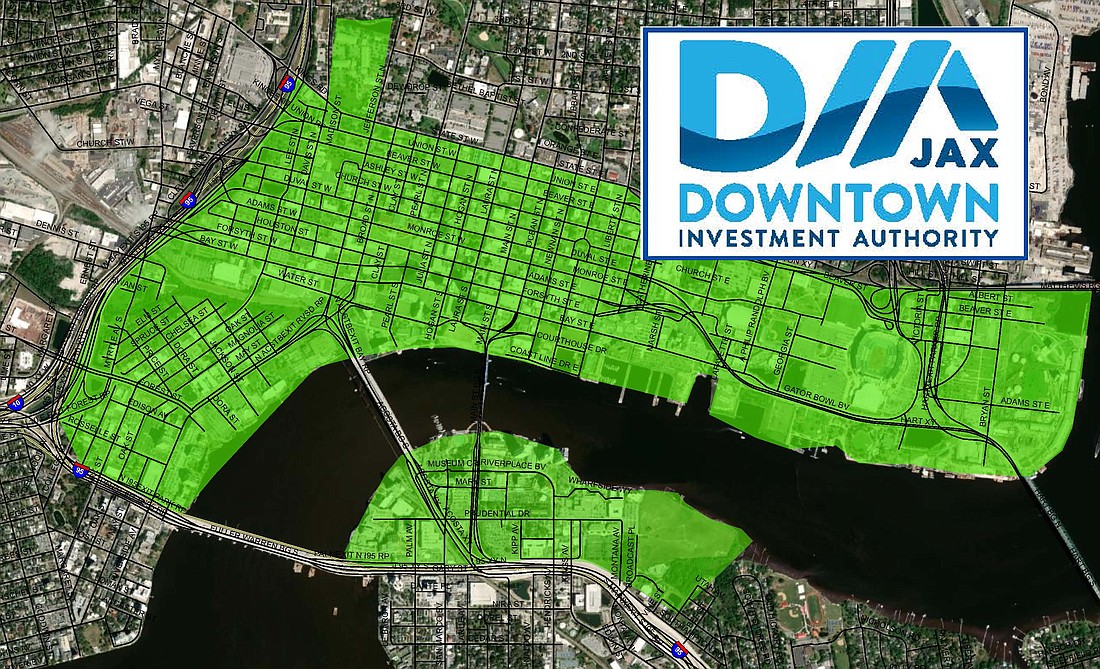
The Jacksonville City Council dropped a contentious provision June 10 to grant itself direct control over the Downtown Investment Authority’s CEO, instead passing amended legislation that provides the DIA with more independence in approving some incentives while lowering the threshold at which Council approval is needed on others.
Council voted 17-0 in favor of Ordinance 2025-0395, a package of proposals that came out of a Council special committee established in 2024 to examine the DIA’s structure, processes and effectiveness in driving Downtown revitalization. The vote constituted final action on the legislation.
Council members Ju’Coby Pittman and Reggie Gaffney Jr. were not present for the vote.
The ordinance initially would have required Council confirmation for the hiring of the CEO and would have allowed Council to fire the top executive on a simple majority vote.
Council committees stripped that provision out of the bill, with several members calling it an overstep of Council authority, and it passed with the DIA’s nine-seat board remaining in control over the hiring of the CEO.
The ordinance also provided the DIA board with the express ability to fire the CEO on a majority vote, a power that previously had been implied.
What it does
Among other elements, the legislation allows the DIA to introduce proposals directly to Council versus the Mayor’s Budget Review Committee. That change was aimed at reducing the approval time for Downtown projects.
The DIA board also will be allowed to approve Recapture Enhanced Value Grants of any amount without Council approval. A REV grant is a refund on increased property tax revenue generated by new development.
In a trade-off, the bill reduced the threshold at which Council approval is needed for other grants from $18 million to $10 million.
The ordinance was introduced by Council President-elect Kevin Carrico, who chaired the Special Committee of the Future of Downtown, and member Joe Carlucci.
Former Council President Ron Salem launched the committee, saying the progress of Downtown redevelopment had been “at best, debatable.”
New DIA CEO selected
The Council’s vote came a day after the DIA board selected Colin Tarbert as the organization’s new CEO. Tarbert, the president and CEO of the Baltimore Development Corp., announced in early 2025 he was leaving his position there effective June 13.

He was selected from among three finalists, including Lara L. Fritts, division director of the Frederick County Department of Economic Opportunity in Maryland, and Danny Chavez, former chief economic development officer for the city of Waco, Texas.
Tarbert’s selection is contingent on the board, DIA and Tarbert reaching a contract agreement.
The current top executive, Lori Boyer, is scheduled to retire effective June 30, 2025. Boyer, who has led the DIA since 2019, is a former Council member and president who helped shape the legislation that founded the organization.
About the DIA
The DIA was created in August 2012 when the Council enacted the Downtown Investment Authority Act. The legislation established the DIA as the sole public economic development agency for Downtown and the overseeing agency for the two Downtown Community Redevelopment Areas, identified as the Southside and Northbank CRAs.
A CRA is a special district that receives tax increment revenue, or the taxes received through an increase in property values within the CRA footprint. CRAs were created under state law to spur redevelopment of blighted areas by reinvesting the tax increment revenue within their boundaries.
Five of the nine DIA board members are appointed by the mayor, with the remainder appointed by Council. All members are subject to confirmation by the full Council.